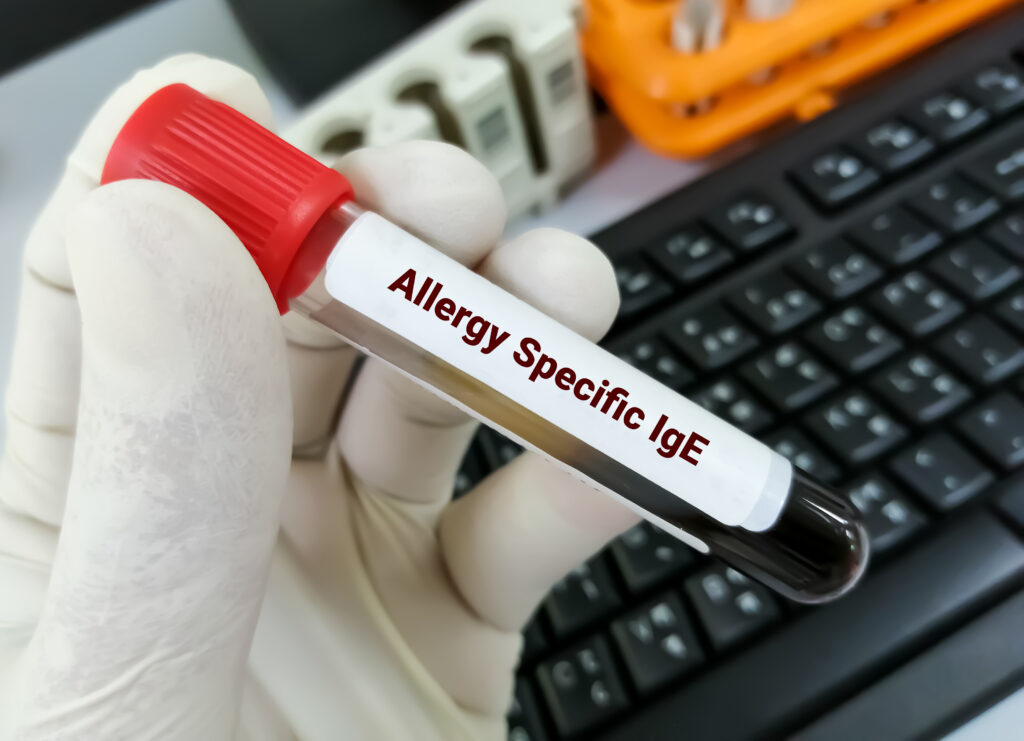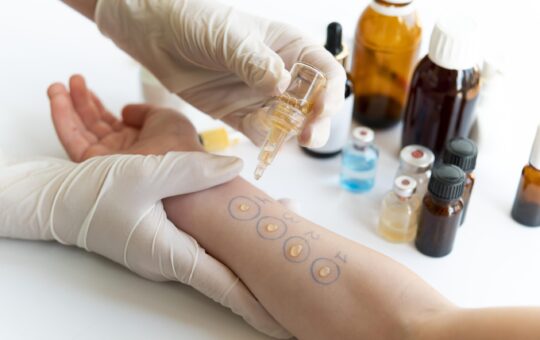Allergy
Dr McGreevy’s expertise in allergy is focused on airborne allergens which can affect your airways, causing nasal or other respiratory symptoms.
An allergy develops when your body’s immune system mistakes a normally harmless material such as pollen or animal dander, as harmful. The immune system then produces specific antibodies capable of recognising the same allergen if it enters the body at a later date. When you’re exposed to the allergen again, these antibodies can trigger a series of reactions and release several different immune chemicals, such as histamine, which in turn cause allergic symptoms in the body.
Why is allergy important?
Allergy Assessment and Testing
When assessing for a potential allergy it is important to look at the entire picture together including a patient’s symptoms, examination findings and test results. There is no test that is 100% diagnostic and the results should be interpreted in light of the history and symptoms. There is also no single ‘screening’ test to diagnose a specific allergy and we must direct our testing depending on the history and symptoms.
You will be asked a range of questions about your symptoms, general health, diet, and home and work environments. All of these are important to work out just what could be triggering your reactions (allergens) as well as deciding what is the most appropriate next step for you.
Skin Prick Test
Skin prick test (SPT) is the gold standard in the assessment of allergic sensitivities due to inhalants allergens. It has the advantage of giving a visible and fast results before you leave your appointment. It involves putting a drop of liquid onto your forearm that contains a substance you may be allergic to. The skin under the drop is then gently pricked. If you’re allergic to the substance, an itchy, red bump will appear within 15 minutes.
Blood tests

We have a wide range of specific IgE allergy tests and also more specific component testing available. These blood tests have to go to the lab therefore you will not get your result on the day. It may be more appropriate to carry out the blood test, if for any reason we cannot do the SPT (some medications, a severe skin condition or previous severe reactions) or if a solution is not available for the specific allergen. An extensive list of various options of blood tests are available (link to pricing). From time to time, skin prick test or IgE blood test results may be inconsistent with the clinical history. For example, they may be negative although the clinical history is strongly suggestive of allergy.
A positive result indicates the potential to be allergic to that substance although it is important to note that many people can have positive responses and absolutely no symptoms whatsoever, hence why a clinical history is so important.
Allergy treatment options:
If allergy is confirmed the management and treatment can be wide ranging to include lifestyle modifications to minimise exposure to the allergic trigger. We can also advise on medical management including antihistamines, nasal treatments and some immunotherapy treatments.







